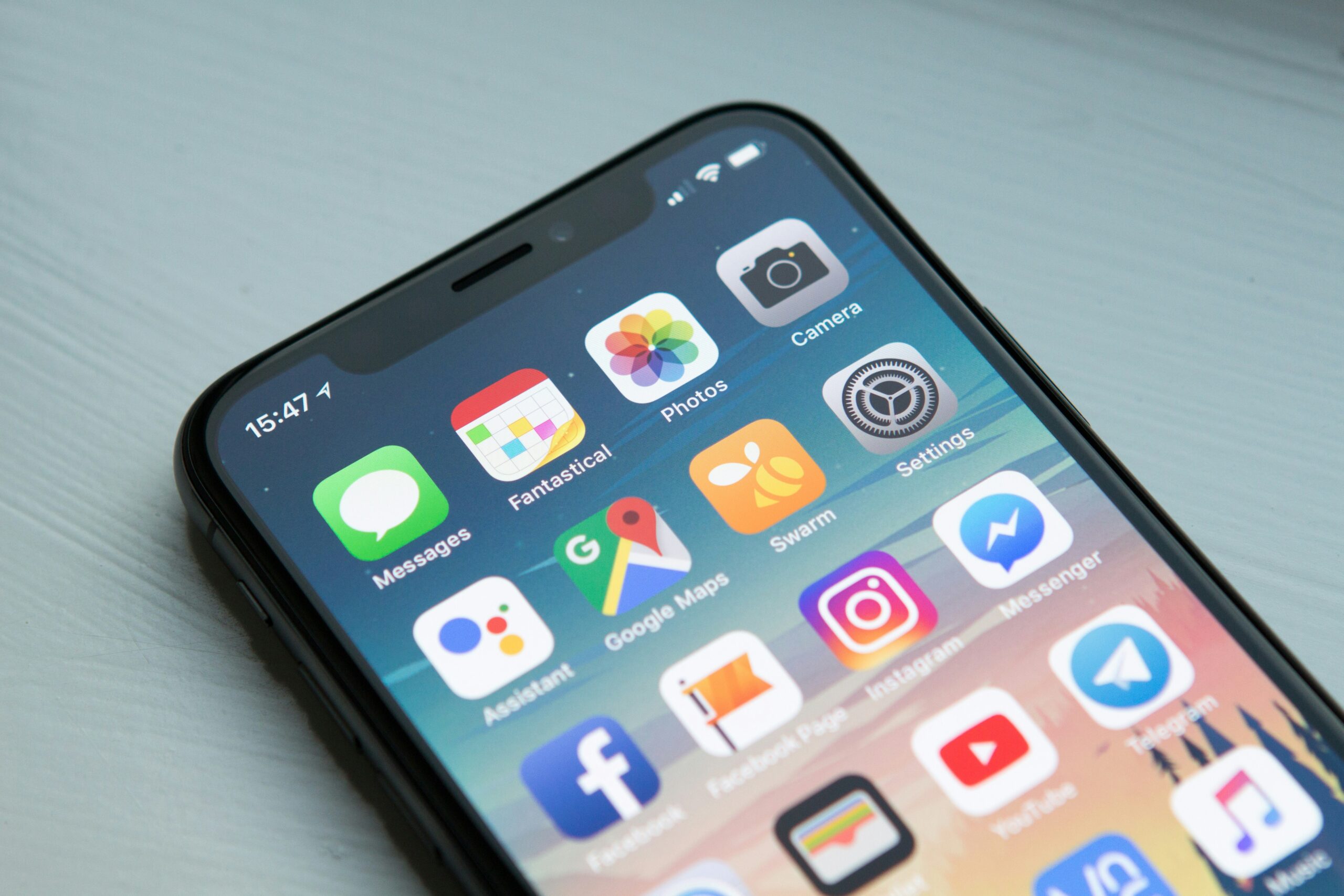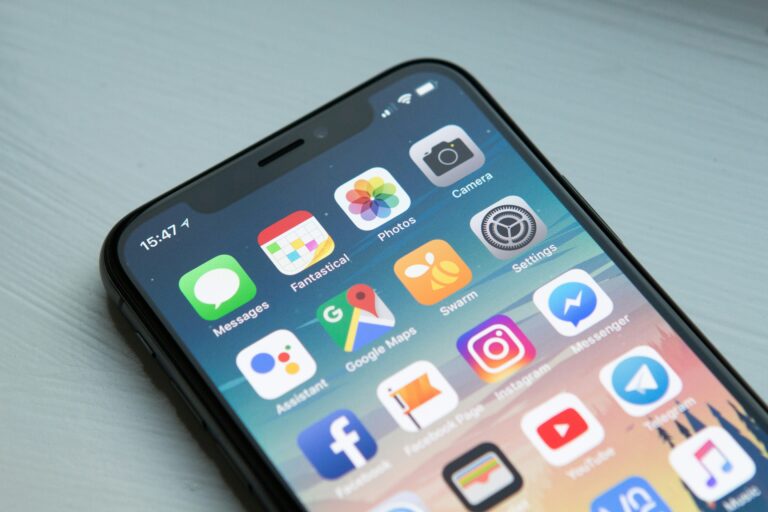Understanding Mobile Apps
A mobile app, short for mobile application, is a software application designed specifically to run on mobile devices, such as smartphones and tablets. Mobile apps can be classified broadly into three categories: native apps, web apps, and hybrid apps, each serving distinct purposes and functionalities.
Native apps are developed for specific mobile operating systems, such as iOS or Android, utilizing the device’s features and capabilities fully. These applications are usually downloaded from app stores and provide users with high performance and a seamless experience. Popular examples of native apps include games like Candy Crush and social media platforms such as Facebook and Instagram.
Web apps, in contrast, are accessed through a web browser and function similarly to websites. They are not specific to any operating system and can be universally utilized across different platforms. These apps rely on an internet connection to function and require continuous updates from the developers. Examples of web apps include online banking services and various e-commerce platforms.
Hybrid apps combine elements from both native and web apps, offering a versatile solution that can be installed from app stores while also being responsive to web technologies. This allows developers to create one application for multiple platforms, reducing development time and costs. Hybrid apps, such as Airbnb and Uber, exemplify this integration by delivering rich user experiences while operating efficiently on different devices.
Overall, mobile apps play a crucial role for businesses and consumers, offering functionality ranging from social networking to productivity tools. Their significance in marketing is undeniable, as mobile applications enable organizations to reach their target audiences more effectively through personalized interactions and increased accessibility.
The Role of Mobile Apps in Marketing
In an increasingly digital landscape, mobile apps have emerged as a crucial component of modern marketing strategies. The significance of these applications is grounded in their ability to enhance customer engagement significantly. With consumers spending more than four hours daily on mobile applications, brands harness this attraction by creating user-friendly and appealing platforms that encourage customer interaction and loyalty.
Mobile apps also improve brand visibility, acting as a constant reminder of a business’s offerings. When customers download an app, they receive a direct line to the brand, allowing for focused and tailored marketing efforts. Mobile applications facilitate push notifications, which can deliver personalized promotions and updates straight to users’ devices. This level of accessibility ensures brands remain top-of-mind for consumers, thereby fostering a deeper connection and encouraging repeat purchases.
Another vital role that mobile apps play in marketing is in direct communication with users. They create a channel through which customers can provide real-time feedback, ask questions, and engage with the brand effortlessly. This immediacy is invaluable, as it helps businesses to swiftly address customer concerns and preferences. As a result, companies can continuously refine their offerings based on user insights, leading to improved customer satisfaction and retention rates.
Statistical evidence further underscores the importance of mobile applications in consumer behavior. According to recent studies, about 90% of mobile internet time is spent on apps, highlighting a shift away from web browsing. Additionally, 68% of consumers prefer to engage with brands through their mobile apps, illustrating the need for businesses to prioritize app development. Companies that actively invest in mobile applications tend to witness higher engagement rates and increased sales, solidifying the assertion that mobile apps are indeed a powerful tool for marketing success.
Key Features of Effective Marketing Apps
In the competitive landscape of mobile marketing, an effective marketing app must incorporate several key features that not only enhance user experience but also drive conversion rates. One of the most critical aspects is user experience (UX) design. A seamless and intuitive UX ensures that users can navigate the app with ease, leading to increased engagement. Apps such as Airbnb and Uber exemplify exceptional UX design, allowing users to complete tasks efficiently. By minimizing friction, these apps improve retention and foster customer loyalty.
Another essential feature is personalization, which tailors the user experience based on individual preferences and behaviors. Personalization can manifest through customized content, product recommendations, or targeted offers. For instance, Netflix utilizes sophisticated algorithms to analyze viewing habits and suggest content that aligns with a user’s interests. This level of tailored engagement not only enhances user satisfaction but also significantly boosts conversion rates, as users are more likely to respond to personalized marketing efforts.
Push notifications serve as another powerful mechanism within effective marketing apps. When used correctly, they can remind users of relevant offers, upcoming events, or personalized content, driving them back to the app. However, it is crucial to balance frequency and relevance to avoid overwhelming users. Successful marketing apps like Starbucks leverage push notifications to re-engage users, sending timely offers that enhance their experience and encourage repeat visits.
Additionally, integration with social media platforms can amplify the reach and effectiveness of marketing apps. By enabling users to share content or achievements on social media, these apps benefit from extended visibility and potential user acquisition. Brands like Nike and Spotify effectively utilize this strategy, encouraging user-generated content that broadens their marketing reach, thus contributing to higher conversions.
In summary, effective marketing apps must prioritize user experience, embrace personalization, utilize push notifications judiciously, and integrate social media features to create engaging and conversion-oriented platforms.
Best Practices for Mobile App Marketing
Effectively marketing a mobile app is crucial for achieving visibility and maximizing downloads in a competitive landscape. One essential strategy is App Store Optimization (ASO). ASO involves optimizing various elements of the app’s store listing, including the title, description, and keywords, to enhance its discoverability in app stores. By employing relevant keywords and compelling descriptions, developers can significantly improve their app’s ranking, ultimately attracting more potential users.
Another vital approach is leveraging social media advertising. With billions of users active on platforms such as Facebook, Instagram, and Twitter, targeted ads can help generate awareness and drive downloads. Creating visually appealing ads that highlight unique features and benefits of the app can capture the interest of potential users. Moreover, utilizing engaging content such as videos and eye-catching graphics can further enhance these campaigns, ensuring broader reach and impact.
Influencer partnerships are another effective way to market mobile apps. By collaborating with influencers who resonate with the target audience, brands can tap into established trust and credibility. Influencers can showcase the app’s features through reviews or tutorials, making it more relatable to their followers. This strategy not only boosts visibility but also encourages genuine engagement and interest in the app.
Additionally, offering incentives for downloads, such as discounts, exclusive content, or in-app rewards, can significantly increase user acquisition. Incentives create a sense of urgency and reward, motivating potential users to download the app. Furthermore, collecting user feedback is paramount for ongoing improvements. Regularly updating the app based on user insights ensures it remains relevant and meets customer needs, fostering long-term loyalty. These best practices, when executed effectively, facilitate sustained success in mobile app marketing.


